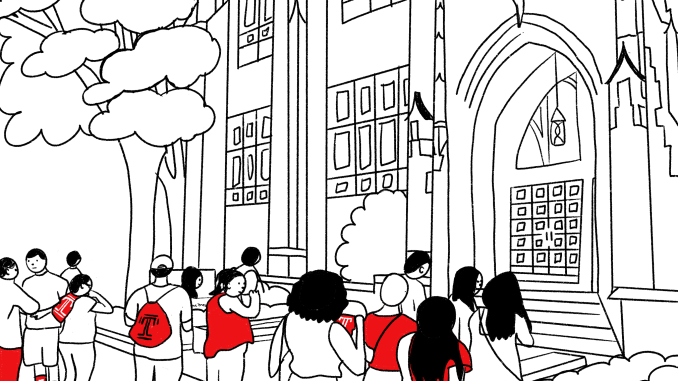
On April 11, Temple University’s Board of Trustees unanimously voted to name JoAnne Epps the university’s acting president following Jason Wingard’s resignation from his position as former president last month.
Epps will serve until a new president is appointed, but the Board of Trustees plans to initiate a formal search process soon.
Temple’s Main Campus is located in North Philadelphia, and its actions directly affect permanent residents. Longtime residents should have an active role in the presidential search through Temple including community-selected representatives to account for what the North Philadelphia community seeks from the next president.
“Let’s break the old curse of conflict, I’m going to call it a curse of conflict that’s been ongoing, between Temple and the community,” said Judith Robinson, the chairperson for the 32nd Democratic Ward Registered Community Organization. “I think it’s totally unnecessary to have this adversarial relationship, but it continues to grow.”
North Philadelphia’s permanent residents have a local and long-term perspective, while Temple students and faculty are typically only temporary members of the community. However, Temple has made permanent changes in the neighborhood without input from residents.
As early as the 1960s, Temple has had expansion plans that would displace Black residents, according to the Historical Society of Pennsylvania.
Since then, North Central has experienced a surge in gentrification as the university expanded and the student population shifted from commuters to those looking to live on and near Main Campus. In the past decade, median home values near Main Campus increased by 152 percent, according to Philadelphia Works, an economic development non-profit organization.
Many residents have felt disrespected and overlooked by Temple, and the university’s search for the 12th president demonstrated this. The 2020 presidential search committee originally consisted of 16 members, 11 of those being white men and 13 being members of the Board of Trustees.
Community activists and elected officials expressed skepticism about the lack of diversity in the initial presidential search committee, and North Philadelphia residents voiced concern for their lack of inclusion, The Philadelphia Tribune reported.
In response to those concerns, the university added Kimmika Williams-Witherspoon, a theater professor and former vice president of Temple’s Faculty Senate, and Valerie Harrison, the vice president for diversity, equity and inclusion, who are both Black women, to the committee.
Although the university took some steps to diversify the presidential search, North Philadelphia residents remained unrepresented in the committee.
However, Temple did conduct a communitywide survey before the last presidential search was completed, wrote Deirdre Childress Hopkins, senior director of communications, in an email to The Temple News. Permanent residents were also able to attend town halls to voice their opinions.
The university should grow from its previous mistakes and include permanent residents as active voices in the current search committee. By gathering information from surveys and town halls, residents cannot guarantee their opinions are accounted for in final decision-making. They deserve a president who will listen to their concerns and acknowledge the negative impact Temple has on their community.
The university did not comment on plans for the next presidential search.
The university and residents also have some shared concerns about gun violence as multiple safety incidents have taken place around Main Campus this semester.
“All I want is you guys as Temple students, just to be safe, not just on campus, but even the ones that live outside of campus,” said Antoinette Thompson, a resident who lives at 16th Street near Diamond.
Shootings within the Philadelphia Police Department’s 22nd District more than doubled in the past four years, NBC 10 reported.
A president who listens to longtime residents could improve relationships as concerns about university values and community relationships arise. Temple ultimately has the opportunity to correct previous mistakes by including the community in the search committee for the 13th university president.


Be the first to comment